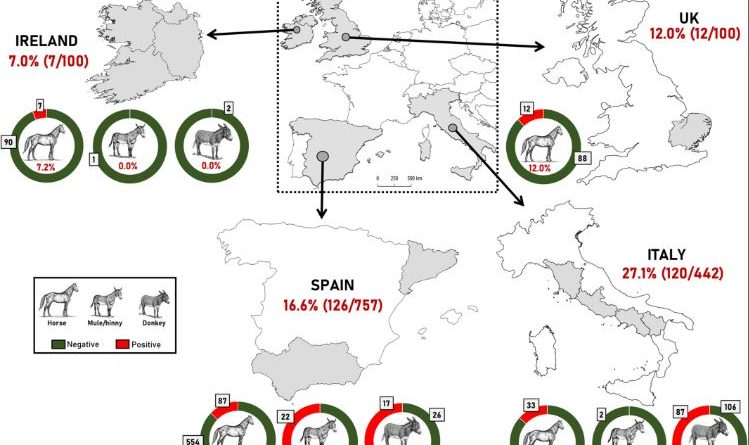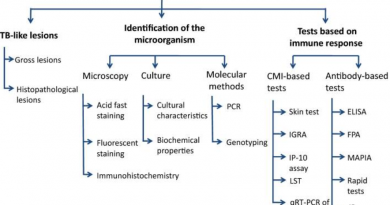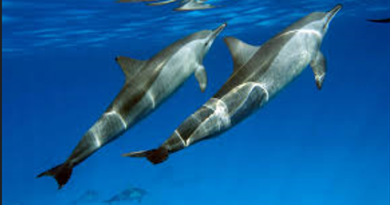Seroepidemiological study of Toxoplasma gondii in equids in different European countries
Abstract
Toxoplasmosis, caused by the obligate intracellular protozoan Toxoplasma gondii, is a worldwide parasitic zoonosis. A cross-sectional study was carried out to determine the exposure to T. gondii in equids in Europe. Serum samples from 1399 equids (1085 horses, 238 donkeys, and 76 mules/hinnies) bred in four European countries (Italy, Spain, United Kingdom [UK], and Ireland) were collected during the period of 2013–2021. The overall seroprevalence of T. gondii was 18.9% (95% Confidence Interval [CI]: 16.9–21.0) by using the modified agglutination test (MAT) at a cut-off of 1:25. Seropositivity by country was 27.1% in Italy, 16.6% in Spain, 12.0% in UK and 7.0% in Ireland. Anti-T. gondii antibodies were detected in 12.8% of the horses, 43.7% of the donkeys, and in 28.9% of the mules/hinnies. A Generalized Estimating Equation (GEE) analysis was carried out to study the associations between seropositivity and explanatory variables related to individuals, herds, and management measures on these herds, selected based on the bivariate analysis. The risk for being seropositive for T. gondii was 5.3 and 2.7 times higher in donkeys and mules/hinnies than in horses, respectively. In addition, significantly higher seropositivity was observed in horses from herds that used disinfectants less than once a week (13.9%; p = 0.038, odds ratio [OR] = 1.6; 95% CI: 1.03–2.62) compared with those from herds that performed weekly disinfection of the facilities (9.4%). This is the first large-scale seroepidemiological study on T. gondii comprising horses, donkeys, and mules/hinnies in Europe and the first report of T. gondii exposure in horses from Ireland and UK. We found a widespread distribution of T. gondii among equid populations in different European countries. The seroprevalence found in these species, especially in donkeys and mules/hinnies, highlights the potential risk of human infection through the consumption of their raw/undercooked milk or meat.




